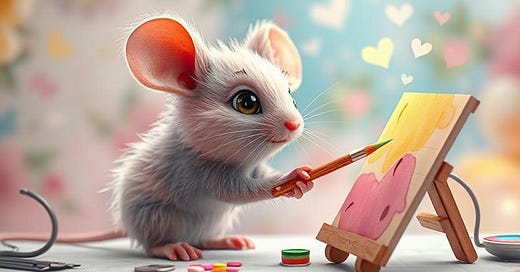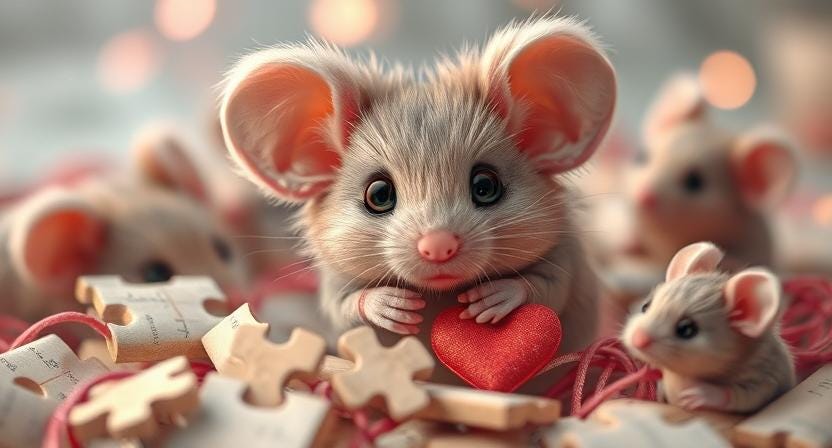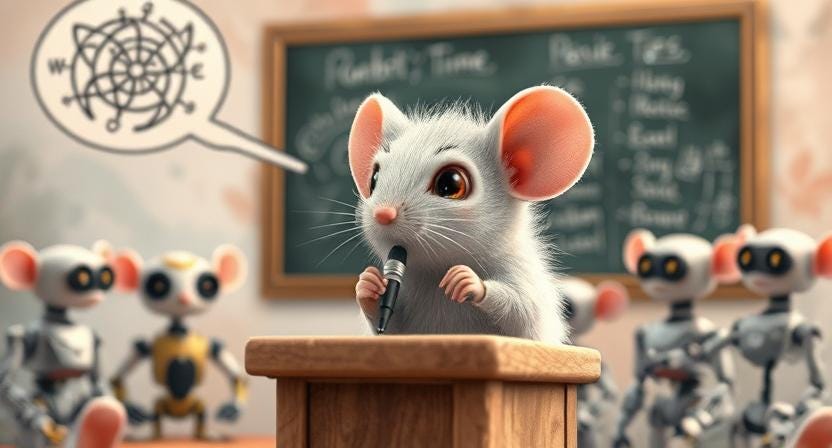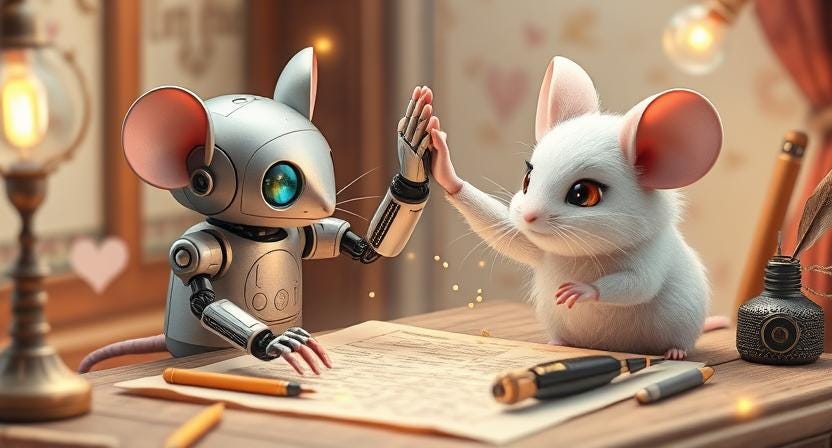AI writing has come a long way. What started as gibberish is now coherent text that can mimic different styles. AI keeps surprising us, first beating humans at chess and Go, and now tackling many other things, including creative writing.
As AI improves, we keep changing what we think only humans can do. Some people even use ChatGPT to argue why AI can't write well. It's pretty ironic.
We're now talking about 'unpromptable' writing - stuff we think AI can't do. But is this really special, or will AI figure it out soon too? Large Language Models like GPT-4 use tons of data to write, and they're getting better all the time. They can now pass writing tests that used to prove human superiority.
For example, last year, researchers at Stanford University found that the latest version of ChatGPT passes a rigorous Turing test, behaving like humans but often performing better in terms of cooperation
But something still feels off about AI writing. The words are there, but it's missing... something.
But How?
In 2025, there’s more than just ChatGPT to do your automated writing for you. A few options:
DeepSeek: An open-source AI model that excels in coding tasks and general text generation. It's free to use and can potentially operate offline, making it popular among developers and privacy-conscious users.
Perplexity: Recognized for its ability to combine web search and AI text generation, it’s trusted by many to do their fact-checking for them. But there’s nothing stopping you from doing creative writing with it.
Grammarly: Continues to be a leading tool for grammar checking and style improvement, now enhanced with more advanced AI capabilities.
Limitations
AI writes well, but it still messes up in ways humans don't. It doesn't get context, so it might write about beach days during a snowstorm. AI can mix up old ideas, but it struggles to come up with truly new ones. It's like a cover band versus a hit-making artist.
When it comes to feelings, AI falls short. Its writing can be correct but emotionally flat. Jokes and sarcasm can go over its head. AI's quality also jumps around a lot. One minute it's great, the next it's nonsense.
The Human Edge
Mice still have some advantages in writing. Humans, I mean. We're good with emotions, not just understanding them but feeling them. This gives our writing a special touch that AI can't copy.
Our life experiences show up in our writing. We've loved, lost, and lived. AI can't match this real-life depth. We also get cultural stuff that AI often misses. We know when to push boundaries and when to be careful.
Our biggest strength? We're unpredictable. We make surprising connections that AI can't. Our creativity doesn't just think differently - it completely changes the game.
'Unpromptable' Writing Tasks
Some writing tasks may still stump AI.
Personal essays are a big one. AI can't really write about losing a loved one or falling in love. It doesn't have those experiences. The emotions in AI writing feel fake, like a plastic flower.
Satire is another tough one for AI. It struggles with the subtle cultural awareness needed for good satire. AI might accidentally say something funny, but it can't create sharp social commentary.
Philosophy is also hard for AI. Sure, it can repeat what Plato said, but coming up with new ideas about ethics? That's still our job. AI can't really wrestle with big abstract ideas or think of new arguments.
Poetry that really moves you? AI can put pretty words together, but it can't capture deep emotions or make you see the world differently.
Lastly, AI has trouble with complex characters in stories. It can make basic characters, but creating someone who feels real, with all their quirks and contradictions? That's still a human skill. Right?
Collaboration is Fine Too
AI and humans working together on writing? It's kind of cliché by now. But sure, AI is like a super-smart assistant, helping with first drafts or research. This helps free up humans to focus on the emotional stuff, the big ideas and whatever.
But it's not all smooth sailing. We'll need to figure out tricky things like who owns the copyright when AI helps write something. And we need to be careful about things like honesty, integrity, and not forgetting how to write yourself. If you ever plan on doing that again…
Final Verdict
So, are human writers going extinct? Not likely. As long as people have stories to tell and feelings to share, there's a place for us. We're the keepers of the stuff AI can't do (yet).
But let's not ignore AI either. It's here to stay, and it's pretty good at some things. The trick is to use the best of both worlds - AI's speed and data skills, plus human creativity and emotions.
In the end, it's not humans vs. AI. It's about using tech to make our writing even better. To tell stories that not only inform but also touch hearts and change minds.
Now grab your favorite writing tool (old-school or high-tech) and start creating something uniquely human. Your readers are waiting!
💌 Edit: Part 2 is out now:
You may also be interested in:
















LLM should work on the boring, repetitive stuff and drive us to greater heights. It could be the spawn of the next stage of evolution instead of our eradication.
I'd like to hear from the philosophers on the meaning of life in the face of AI. Absurdist, nihilists, existentialists, the works
I tried to get AI to write about my earliest memory - a car wreck. Of course it got it all wrong, even though I gave it the main details. But it did help clarify what I could remember, bring back details that I may have forgotten or glossed over - like the color of the car or the weather. Even though the details were wrong, it made me think more about what to include in the story. I don't think it can replace humans, but it can help you write more and better.